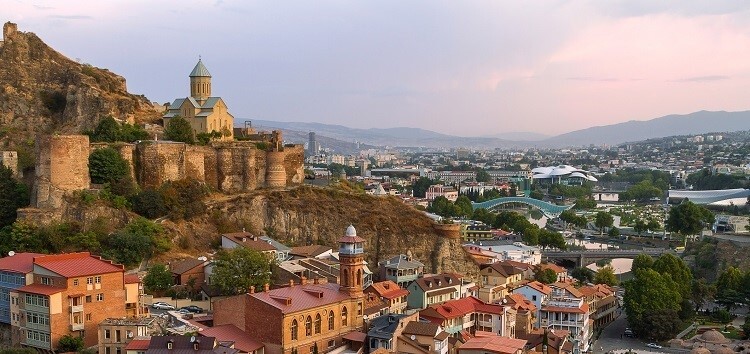Representatives of the European Bank for Reconstruction and Development’s Board of Directors will visit Georgia on 19-23 June. The Directors, who represent the Bank’s shareholders, will meet with government, businesses and civil society representatives. They will have the opportunity to travel to regions outside the capital, visiting several projects financed by the Bank. The trip will give the Directors an opportunity to see the impact of EBRD investments first hand.
The delegation will include:
Board Directors:
Klara Krol, host-country representative, Director for the Czech Republic, Hungary, the Slovak Republic, Croatia and Georgia;
Gerhard Hutz, Director for the European Investment Bank (EIB);
Yann Pouezat, Director for France;
Rosmarie Schlup, Director for Switzerland, Ukraine, Liechtenstein, Turkmenistan, Serbia, Montenegro and Uzbekistan;
Alternate Directors:
Katherine Allen, Alternate Director for the United States of America;
Markus Schulte, Alternate Director for the European Union (EU);
Alfredo Panarella, Alternate Director for the EIB;
Jan Willem van den Wall Bake, Alternate Director for Netherlands, China, Mongolia, North Macedonia and Armenia;
Karina Karaivanova, Alternate Director for Poland, Bulgaria and Albania;
Kristina Akesson, Alternate Director for Sweden, Iceland and Estonia;
Sean Lee, Alternate Director for Australia, Korea, New Zealand and Egypt.
The delegation will be led by the Bank’s Regional Director for the Caucasus, Catarina Bjorlin Hansen.
Board visits provide EBRD shareholder representatives with direct information on recent developments in the economies where the Bank operates and on the Bank’s activities.
The EBRD is owned by 71 countries on five continents, as well as the EU and the EIB. These shareholders have each made a capital contribution, which forms the Bank’s core funding. Each shareholder is represented individually on the Board of Governors of the EBRD, which has overall authority over the Bank and sets its overall strategic direction.
The EBRD’s latest strategy on Georgia was approved in December 2021. Its main priorities are to:
· improve the productivity and resilience of the economy through enhanced competitiveness and access to finance
· promote equal opportunities through better inclusion and balanced territorial development
· accelerate the green transition through increased investment and better governance.
The Bank has invested more than €5 billion in 286 projects in Georgia to date, with private-sector investment accounting for 82 per cent of overall financing.
Source: EBRD


